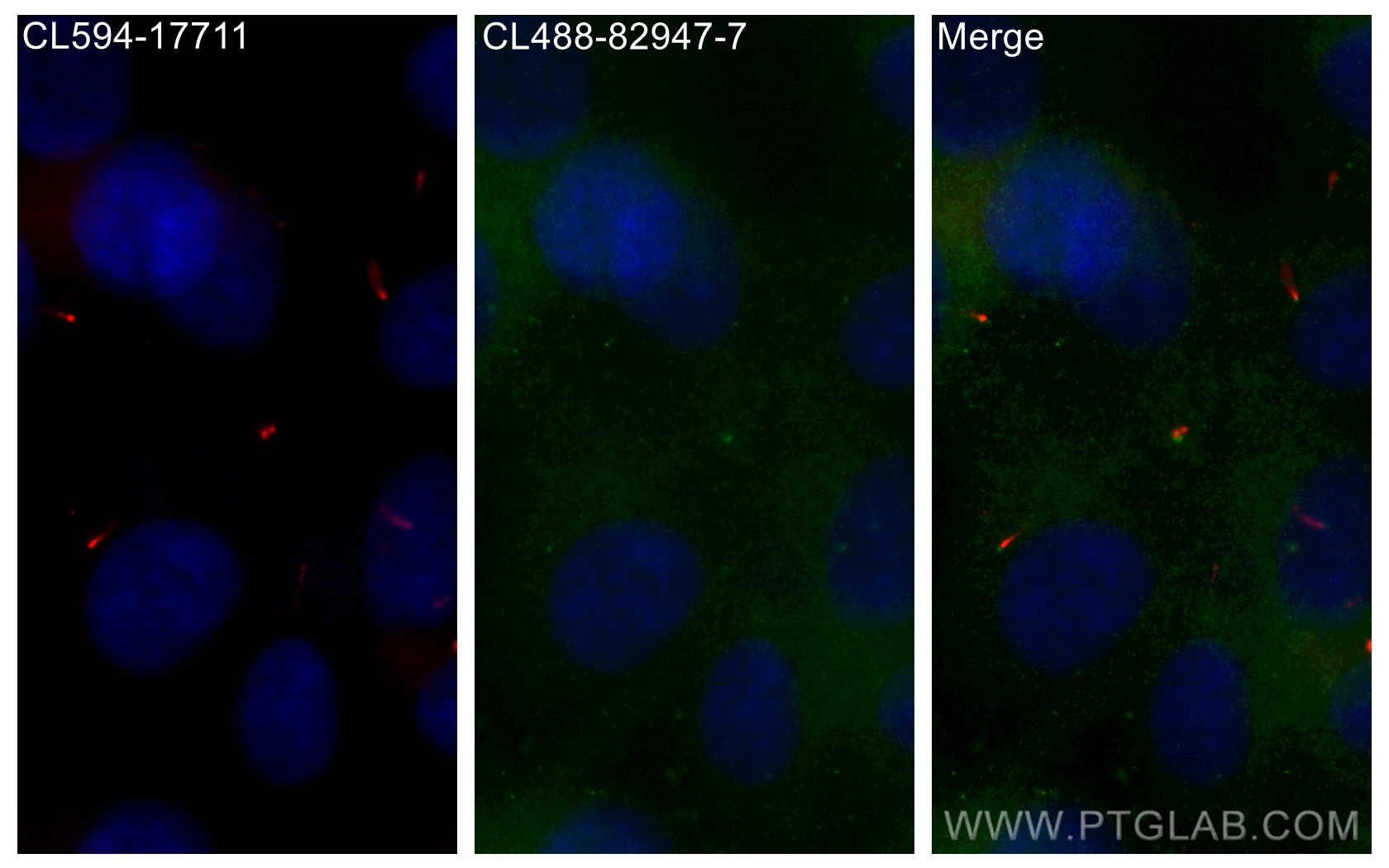Tested Applications
| Positive IF/ICC detected in | hTERT-RPE1 cells |
Recommended dilution
| Application | Dilution |
|---|---|
| Immunofluorescence (IF)/ICC | IF/ICC : 1:50-1:500 |
| It is recommended that this reagent should be titrated in each testing system to obtain optimal results. | |
| Sample-dependent, Check data in validation data gallery. | |
Product Information
CL488-82947-7 targets IFT140 in IF/ICC applications and shows reactivity with human samples.
| Tested Reactivity | human |
| Host / Isotype | Rabbit / IgG |
| Class | Recombinant |
| Type | Antibody |
| Immunogen | IFT140 fusion protein Ag11119 Predict reactive species |
| Full Name | intraflagellar transport 140 homolog (Chlamydomonas) |
| Calculated Molecular Weight | 1462 aa, 165 kDa |
| Observed Molecular Weight | 150-165 kDa |
| GenBank Accession Number | BC035577 |
| Gene Symbol | IFT140 |
| Gene ID (NCBI) | 9742 |
| RRID | AB_3673148 |
| Conjugate | CoraLite® Plus 488 Fluorescent Dye |
| Excitation/Emission Maxima Wavelengths | 493 nm / 522 nm |
| Form | Liquid |
| Purification Method | Protein A purification |
| UNIPROT ID | Q96RY7 |
| Storage Buffer | PBS with 50% glycerol, 0.05% Proclin300, 0.5% BSA, pH 7.3. |
| Storage Conditions | Store at -20°C. Avoid exposure to light. Stable for one year after shipment. Aliquoting is unnecessary for -20oC storage. |
Background Information
IFT140 is a subunit of intraflagellar transport complex A (IFT-A) which is involved in retrograde ciliary transport. RT-PCR analysis showed it is highly expressed in kidney, moderately in ovary, testis, prostate, and lung. IFT140 is localized to the base and tip of primary cilium. IFT140 has a pivotal role in development and function of ciliated cells, and mutations of IFT140 cause skeletal, renal, and retinal ciliopathies. It had been detected as a single band around 140-165 kDa in different reports (PMID: 20368623, 22282595).
Protocols
| Product Specific Protocols | |
|---|---|
| IF protocol for CL Plus 488 IFT140 antibody CL488-82947-7 | Download protocol |
| Standard Protocols | |
|---|---|
| Click here to view our Standard Protocols |



